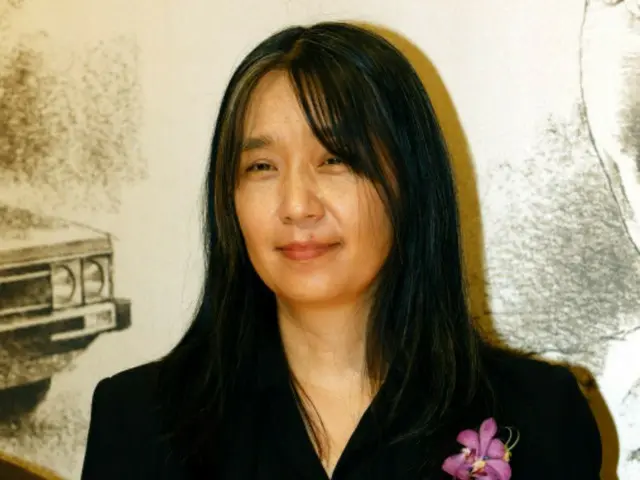In South Korea, President Yoon Seok-yeol declared "emergency martial law" this month, causing political instability and turmoil, but this is a bright hot topic for the first time in a while.
The article reports on the ceremony, using symbols of the Nobel Prize ceremony, such as, "Han Kang is the first Korean to walk on the 'Blue Carpet.'"
In October, the Swedish Academy, which selects the winners, announced that this year's Nobel Prize in Literature would be awarded to Han Jiang.
This is the first time a Korean has received the Nobel Prize, and the second overall, after then-President Kim Dae-jung received the Peace Prize in 2000. At the time, Han's award was met with a wave of cheers in Korea.
The local media reported the news in unison, with the Hankyoreh newspaper reporting that "the news of Han Kang's winning the literature prize was a great achievement that brought cheers to the book-loving public."
The rapid economic growth of the country is called the "Miracle of the Hangang River," and at the time, people in the country were excited, saying, "This is the miracle of the Hangang River," a play on Han's name, which is pronounced the same way.
As a result, large bookstores in South Korea were inundated with orders for Han's works. Online bookstores also received a flood of orders, causing confusion and causing their websites to temporarily crash.
At the time, the Swedish Academy, in explaining the reasons for its selection, described Han's work as "powerful and poetic.
Her prose writings confront historical trauma and reveal human fragility. Throughout her work, she has a unique awareness of the relationship between the mind and the body, and between life and death.
"Her poetic and experimental style can be said to be an innovative presence in contemporary prose literature," he said. Han was born in Gwangju in the southwest of the country and graduated from Yonsei University in Seoul.
After graduating from the Department of Japanese Literature, he made his literary debut in 1993 with five poems. The following year, his short story "Red Anchor" was published in a newspaper, marking the beginning of his career as a novelist. In 2016, he published a collection of short stories.
With "The Vegetarian," he became the first Asian author to win the International Booker Prize, one of the world's three major literary awards along with the Nobel Prize in Literature, and became a writer attracting attention from around the world.
Han, who arrived in Stockholm to attend the award ceremony, held a press conference there on the 6th of this month.
"I watched the unfolding situation in shock," he said, referring to the riots. In South Korea, martial law was declared in 1980, and then the "Gwangju Uprising" occurred.
"The Boy Comes" is a work based on the same incident. At the press conference, Han said, "When I was writing the book, I spent a lot of time learning about the situation under martial law at the time, but I would like to see a similar situation with my own eyes in 2024.
"I was surprised to see that the situation has changed," he said. He then appealed, "I sincerely hope that we will not return to an era in which freedom of speech is controlled and suppressed." On the 7th, he gave a commemorative lecture in the city. His speech was entitled "Light and Threads."
Han reflected on the world of her work, which she describes as "life and death" and "violence and love." She introduced a poem she wrote when she was eight years old: "What is love? It's the golden thread that ties our hearts together."
He said that some of the words he used in the poem are connected to him now. He also said that when he was writing his novel "The Vegetarian," he wondered, "Is it possible for a person to be completely innocent? How can we be?"
"How deeply can we reject violence?" This question arose, and led to his subsequent works "The Wind Blows, Go" and "I Don't Say Goodbye." The novel reaches the end of this question.
Han concluded, "It's a moving moment when I realize that language is the thread that connects us, and that my question is connected to that thread through which the light and current of life flows.
"I would like to express my sincere gratitude to all those who have been connected to this thread," he said, concluding his speech. About 300 people listened to his speech at the venue, and it was also streamed live on YouTube.
The award ceremony was held at the Stockholm Concert Hall on the evening of the 10th (early morning of the 11th Japan time), and King Carl XVI Gustaf presented Han with the gold medal and a certificate.
The Denver Academy called it "a powerful piece of poetic prose that confronts historical trauma and exposes the fragility of human life."
2024/12/12 11:12 KST
Copyrights(C)wowkorea.jp 5

